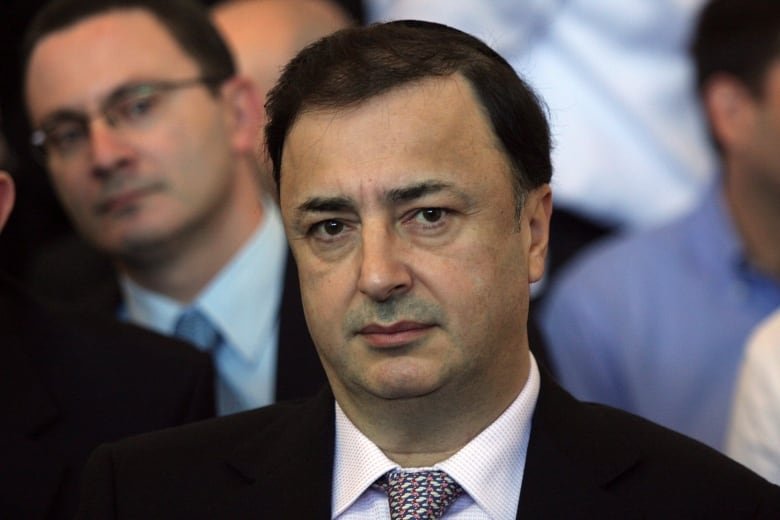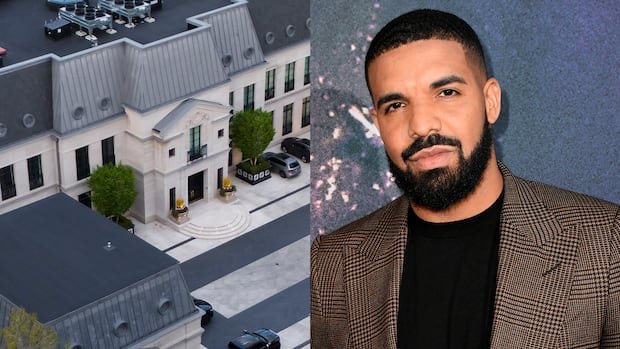Amid the feud between Drake and his Los Angeles-based rival Kendrick Lamar, online sleuths uncovered details about the former’s businesses and other holdings that started a buzz on social media.
Over the course of April and May the two prolific rap artists, widely considered two of the best of their generation, exchanged a series of diss tracks airing their personal grudges.
Chatter online between fans led to some of Drake’s naysayers posting public records available in the U.S., revealing personal and financial details about the 37-year-old Toronto rapper. CBC News obtained a collection of similar documents, sourced from the American data goliath LexisNexis, Pacer and others, and took a closer look at the multi-Grammy winning artist and his business dealings south of the border.
Much of the interest surrounding the records centres on Drake’s many businesses and what some suggested is an overuse of limited liability companies (LLC). An LLC is a type of business that allows an individual to separate their personal wealth and assets from an owned business, while still allowing them ownership over that business.
The CBC News search showed that Drake had incorporated approximately 52 entities, of which 38 were LLCs.
Multiple LLCs
But experts say, for a person like Drake with an estimated net worth of $250 million, having multiple LLCs or other incorporated ventures is a legitimate business practice.
“It’s very common for people of very high net wealth to have an inordinate amount of LLCs at times,” said Robert Kleinfeldt, senior corporate counsel at U.S. law firm Romano Law.
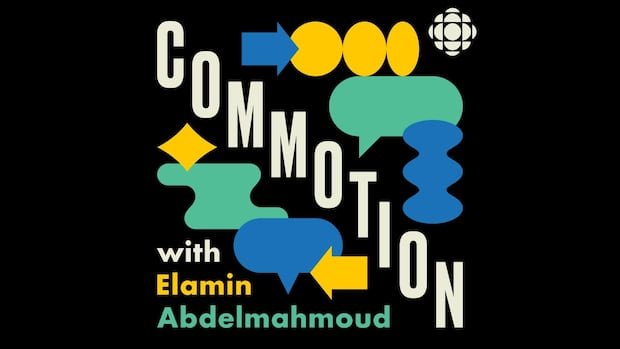
Elamin is joined by rap culture critics Clarkisha Kent and Charles Holmes to unpack the latest developments in the Kendrick Lamar and Drake rap feud, and the way gender and misogyny have intersected with this feud and across rap music history.
“Donald Trump has quite a few of them… That is a form of asset protection: When you have that kind of net worth, you kind of have a bull’s eye or a target on you for what can be frivolous lawsuits at times.
“It’s honestly advisable in many instances, when you have that kind of net worth,” said Kleinfeldt about Drake’s business practices. “It’s a good way of protecting yourself from potential creditors trying to reach your assets through no fault of your own, whatever the case may be.”
Drake’s feud with Kendrick Lamar prompted critics to question the Toronto rapper’s business dealings, including the number of companies he owns. CBC’s Ben Makuch accessed public records to examine Drake’s companies and real estate holdings.
There are several clear themes among some of the 52 entities’ names. Others are mysterious.
For example, one of the first viral tweets drew attention to the ominous name of Silence Policy, LLC, which listed the Toronto rapper as its manager. There are no surviving websites or other documentation for the company, which has shut down, other than in online, corporate databases. Its former address (which is the same for almost all of the 52 companies) is a building complex in Beverly Hills which counts Playboy offices and several Hollywood accounting firms as tenants.
There are nine companies referencing the name DreamCrew — Drake’s well-known media company, part of the teams behind Netflix’s Top Boy and HBO’s Euphoria — and 18 beginning with or including ADG, a nod to Drake’s initials, his legal name being Aubrey Drake Graham.
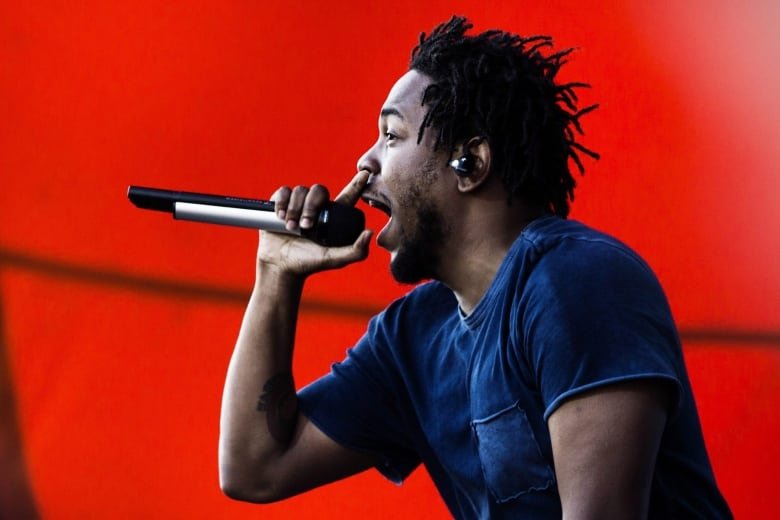
There were an additional four companies whose names begin with Away From Home, a reference to a song on one of Drake’s latest studio albums and three using the name Frozen Moments, which at one point was speculated by at least one outlet to be a personal record label.
At least three companies made mention of or allude to owls. The golden stencil image of the nocturnal bird is the globally recognized symbol of Drake’s OVO Sound record label.
And according to the list of incorporated companies there is an Owl Creative Holdings, LLC showing Drake as the manager, and the oddly named Strix S-Corp. In classical mythology a strix is a sort of owl-like creature known for feeding on the blood of humans.
A day after a security guard was shot in front of Drake’s sprawling Toronto mansion, CBC News has learned new details about the efforts to improve security on the compound, and who runs the firm in charge of protecting him.
Dividing a larger business into multiple companies allows people like Drake to protect each of those ventures from being affected by another if it comes under legal pressure and funds are targeted.
“You want to keep every single one of those businesses in effect, well, segregated,” said Jonathan Garbutt, a Canadian tax lawyer with Dominion Tax Law, which has practises in Toronto and Calgary.
That way, “any risks related to that project and — getting sued or having, you know, going broke or anything to do with that particular project — are isolated to that particular project and the assets of that particular entity.”
L.A. mansion, Florida condo
Since Lamar made the art for one of his diss tracks an image of Drake’s Toronto home, Drake’s properties have also become a topic of conversation, which the Toronto rapper has frequently bragged about in his music.
TMZ reported earlier this month that Drake has re-listed his multimillion-dollar mansion in Beverly Hills, Calif. — which some have taken notice of in light of it being in Lamar’s home state.
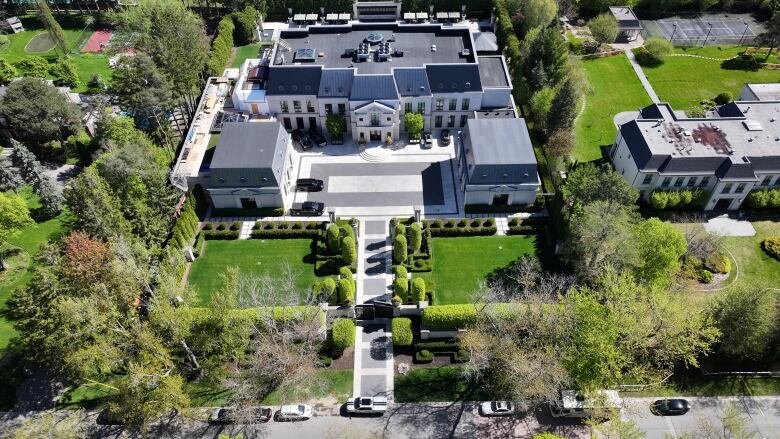
While he reportedly owns more homes elsewhere in the U.S., the records obtained by CBC News show two of Drake’s former properties: an L.A. mansion he sold in 2022 and a Florida property he sold in 2012.
In his 2011 track The Motto Drake raps that he owns “a condo up on Biscayne” in Miami. In that same year, Drake bought two Miami condos on Biscayne Boulevard, side-by-side units purchased for a combined cost of $1.9 million US, then renovated into one and flipped to former NBA player Mario Chalmers in 2012 for $2.4 million US.
According to public documents, Drake bought the condos from the now-defunct Florida developer Leviev Boymelgreen Marquis Developers LLC, which was a partnership between controversial businessmen Lev Leviev and Shaya Boymelgreen.
Leviev and Boymelgreen have been linked to the illegal construction of Israeli settlements in the West Bank — including in a 2008 Quebec court case which was later dismissed, after courts decided the case would be better litigated in the Israeli judicial system. UNICEF, Oxfam and the U.S. investment firm BlackRock cut ties with Leviev after the allegations.
Representatives for neither Boymelgreen or Leviev returned multiple requests for comment about their sale of condos to Drake and their involvement in West Bank settlements.
Drake’s public relations team declined to comment to CBC News on the record about his many companies or about the Miami condos.
